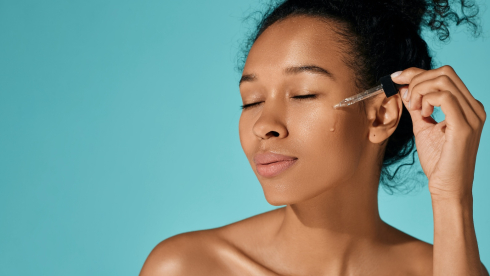Marriage is becoming obsolete. Or at least that’s what my mentee, Kayla, told me recently. She’s a twentysomething, know-it-all badass and I love her. Kayla is a lot of who I wish I was at 20. She’s preparing, as we speak, to travel abroad. She embraces and celebrates all the quirky things that make her shine, and she’s not wasting her live-out-loud years obsessing over men she’ll barely remember the names of when she’s 40. So when she decided to school me on the new “relationship model,” I had to sit up and listen.
“Hookup culture” is a term we usually reserve for our college days of experimenting with everything, including hearts and bodies. But it seems that the culture is shifting past that era of our lives. Why? Some say we’re at a pivotal societal point where we’re so self-absorbed and lazy that we don’t want to take on the work and responsibilities of relationships, so we don’t commit.
RELATED: 4 DOS AND DON’TS FOR DATING SINGLE MOTHERS
While there may be some truth in that, I also believe that social mores concerning relationship commitments have changed because we simply have more options for our lives.
And that’s not a bad thing, especially for women.
Now, to be clear, I’m not advocating for being irresponsibly promiscuous (which is how we tend to view “hooking up” in college), but rather taking one’s time to commit and realizing that we can have whole, full lives as single men and women—which can only lead to more fulfilling and lasting relationships. Young women like Kayla are benefiting from delaying romantic commitments, for sure. Hanna Rosin, author of The End of Men, examines hookup culture through a feminist lens in this piece from The Atlantic:
“But this analysis downplays the unbelievable gains women have lately made, and, more important, it forgets how much those gains depend on sexual liberation. Single young women in their sexual prime—that is, their 20s and early 30s, the same age as the women at the business-school party—are for the first time in history more successful, on average, than the single young men around them. They are more likely to have a college degree and, in aggregate, they make more money.
“What makes this remarkable development possible is not just the pill or legal abortion but the whole new landscape of sexual freedom—the ability to delay marriage and have temporary relationships that don’t derail education or career. To put it crudely, feminist progress right now largely depends on the existence of the hookup culture. And to a surprising degree, it is women—not men—who are perpetuating the culture… cannily manipulating it to make space for their success, always keeping their own ends in mind. For college girls these days, an overly serious suitor fills the same role an accidental pregnancy did in the 19th century: a danger to be avoided at all costs, lest it get in the way of a promising future.”
I grew up in the care of (and listening to life and love conversations between) women who married young, had children young, and struggle with how much of their lives they gave away. It is not, necessarily, that they regret marrying their husbands or birthing and raising their children, but more that they wish they would have lived a little before they committed themselves in those life-changing ways. As a woman who married not as young as my mother (but much younger than I’d want my own daughter to marry), the conversations I heard growing up now make perfect sense.
So what stops some women from being more open to dating, and possibly sexing, without a formal commitment?
Black women are conservative socially and sexually for a myriad of reasons that would take a series of posts to explain, but much of it surrounds our bodies. Our bodies brought forth a nation—not only a nation of Black men, but also of riches untold to the U.S. And so the nation, our community, our partners, and even we still fumble clumsily with sexual liberation.
Little reminds us of what our bodies represent and how the nation responds to them more than what we saw from those visiting artist Kara Walker’s recent “A Subtlety” exhibition. Because of the extremely complicated history attached to our bodies, many Black women cling to their ho tapes, hoping that chastity and the stifling of desire will lead them to love, respect and safety.
Tying so much of who Black women are as human beings to how we sex, date and commit makes doing what may benefit us (living more now, committing later) unattractive to us as we examine “the bigger picture,” which for many of us means doing as our parents did.
All in all, even if a bit controversial, I applaud women like Kayla who are exploring all of the options available to them, including, possibly, many casual dating and sexual experiences.













